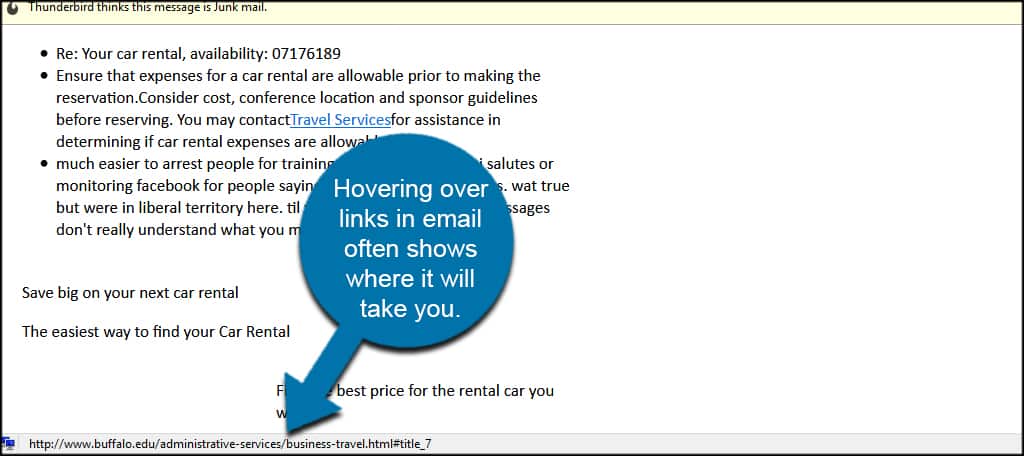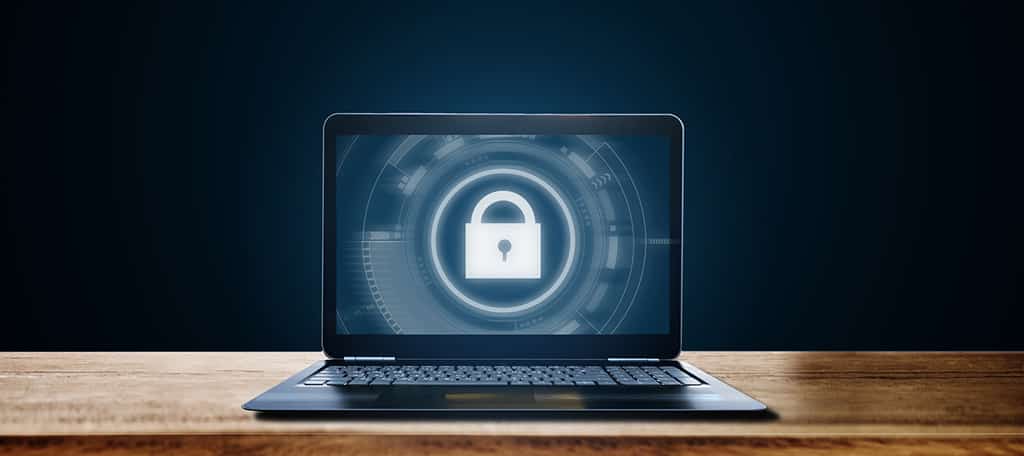
October is Cyber Security Awareness Month…are you doing enough to keep yourself safe? Unfortunately, a lot of people don’t put as much emphasis in protecting themselves online as they should. And it’s not like the Internet has always been a safe place.
From email frauds to hacking corporate databases, there is always a threat looming around the corner. The best way to combat issues like these is to prevent them from happening in the first place.
Never assume you’re doing enough to keep the cyber wolves at bay. All it takes is the smallest of weaknesses to turn your life upside down.
The Importance of National Cyber Security Month 2018
The news is full of how the criminal element has taken advantage of a weak digital infrastructure. And I’m not simply talking about social media ads and campaigns to influence the populace.
For instance, an 11-year old was able to hack into a replica voting system used in Florida. Which goes to show even the government doesn’t implement the strongest methods of security.
In 2018, the sixth largest cryptocurrency exchange Bithumb lost $30 million due to an attack. This is a system thought to be stable, secure and far less likely to suffer such a hack.
Even the entry way to Google itself was hacked by an employee who was curious as to the stability of the network. Needless to say, this individual was able to easily unlock the doors to his office.
In September of 2018, Facebook faced a severe security breach as hackers were able to access account information of about 50 million users.
This year, let’s take a closer look at Cyber Security Awareness Month ideas to help you protect data. Even the simplest of changes can have a profound impact in digital safety.
1. Change All Your Passwords

According to estimates, at least 10% of people online have used one of the top 25 worst passwords. These are credentials that are the easiest to crack, which is giving hackers half of what they need to gain access to your information.
Perhaps the biggest problem with cyber security is the individual themselves. Too many people assume they will never be a target or the company they use online is secure enough.
The bottom line is everyone is a target and there is no such thing as “secure enough.” Anytime a new system is in place, people will do what they can to hack it.
It all starts by making sure your login credentials are unique and difficult to guess. This often means creating a password you can’t remember that is full of symbols and random characters.
But this also means your password is far more secure than something like “12345” or “qwerty.” The more random it seems, the more secure it is. Something like “f8DAsj@k4578u!” is far more secure than “starwars.”
Another measure to keep your password secure is to never use the same one twice. Every site should have a unique log in and a new password created often.
If you have to write them down, keep them in a safe place. For example, you wouldn’t want a booklet of your passwords lying around on your desk or in your travel bag. Someone can easily pick it up and gain access to everything.
One of the best things you can do is to keep changing your passwords on a regular basis. This greatly reduces the risks to your online accounts if the organization’s database was stolen.
2. Always Have a Backup

Hackers don’t always want to simply steal your information. Sometimes they want nothing more than to destroy your data entirely. From a personal blog to a corporate database, it’s often devastating when information seems erased from existence.
Having a current backup on hand lets you quickly and easily recover. In many instances, it takes nothing more than a few clicks of the mouse to restore information from a backup system.
However, this doesn’t mean you’re completely safe. You also need to make sure any compromises that lead to the information being destroyed in the first place are addressed. Otherwise, hackers can simply hit you again and again.
Unfortunately, this means you need to trust third-party sites to provide their own security against malicious attacks like this. For instance, you don’t really have the option to back up your data from most eCommerce sites.
For the digital realm, though, you do have options to store files you don’t want to lose. A lot of people will use online Cloud storage systems like Dropbox to create redundant copies of important files. This prevents losing everything in the event your computer is infected with a virus.
When it comes to the website, using systems like WordPress opens the doors to all kinds of security and backup methods. One of the more effective and popular tools is that of the Updraft plugin. In fact, it will even save website files directly to your Dropbox account.
3. Always Pay Attention to What Sites You Browse

One of the more common problems online is that of browsing hacked websites. Even some of the most innocent looking pages have potential to harbor malware or designed to steal your login information.
Paying attention to a website’s URLs also means looking at links that may come in through email. Sometimes a message could appear legitimate only to have a dangerous link.
Here’s a good example. I recently received an email as a confirmation of my car rental request. I didn’t request a car rental, but there is a link in the email that will let me contact the travel agency.
When hovering over the link, Thunderbird will show the URL in the bottom bar. Needless to say, I doubt the University of Buffalo doubles as a traveling agency.

This tells me the buffalo.edu site has been hacked. This is a common practice of “phishing.” It’s when hackers will create a seemingly legitimate email and webpage for the purpose of stealing your info.
Always pay attention to the URLs of sites you visit. If you see something like, “http://www.ilovecarp.com/paypal.html” in your address bar, I assure you, it’s not an official PayPal website.
4. Watch What You’re Connecting

Cyber Security Month is more than just protecting yourself in the digital realm. You also need to watch what you’re connecting to your computers and mobile devices.
One of the worst viral infections I’ve ever seen was due to a memory card from a digital camera being plugged into a computer system. In mere moments, the virus spread across the business network.
If the device can store information, it’s usable to deliver a payload for hackers. Unfortunately, this includes a lot of devices nowadays. In fact, the Internet of Things can contribute to a variety of hacking and malware.
Hacking and malware bots don’t just travel through hardware like memory cards and thumb drives. Sometimes connecting to a wireless network can open the flood gates to being a target.
In fact, this is one of the biggest reasons why many will invest in a VPN service.
In reality, free Wi-Fi locations are subject to a myriad of problems. For instance, the Krack Attack puts most mobile devices at risk when connecting to unsecured networks you’d find at coffee houses and such.
One of the best ways to protect yourself in this instance is to have an updated firewall or VPN service on all your devices. This reduces the risks of being hacked by connecting hardware or to an unknown network.
5. Be Mindful of Sharing on Social Media

A lot of people are guilty of putting themselves at risk simply by sharing too much information. With the right amount of data, criminals can steal your identity. They may even talk you out of money to “help” them out.
Unfortunately, you’ll do nothing more than help them to your bank account.
For instance, a lot of these cyber thugs will send friend requests on sites like Facebook or follow and message a Twitter handle. Once they establish confidence and become your “friend,” you’re more likely to share personal information.
In many cases, this is done over a long time. Some relationships can go on for months before the cyber criminal begins putting together your information. Some may even request money for “emergencies.”
In the case of Facebook, you can avoid these people by just looking at their profile. If it lacks information and only shows a single post, there’s a good chance it’s a scam account.
Report it and move on.
Unfortunately, it’s not always that easy to determine a fake account from the real thing. This is especially true if you belong to many groups and conversations on social sites. Under the guise of a shared interest, criminals will try to gain your trust.
A good rule of thumb is to never share anything online with people on social media you wouldn’t tell a complete stranger in a Walmart parking lot.
Information you share on social media may inadvertently get into the wrong hands. Take the Facebook hack I mentioned earlier. What information about yourself do hackers now have in their possession?
6. Keep Your Systems Locked Down

Never leave your devices unattended. But if you have to leave, always make sure the unit is locked down. And with the number of security options on mobile devices today, it’s best to take advantage of all of them.
What if someone picks your smartphone up off your table at a restaurant? Will he or she be able to use your phone or browse your files?
Even if you are mindful about keeping your device on your person, you never know when someone will work to steal it from you. In fact, phones are the second most common items stolen from airports.
Eye-scanning, thumbprint verification, biometric scanners and more are available for most smartphones today. It’s a good idea to make sure your unit is locked tight.
Sure it may take you a few more moments to use your device when out and about, but it’s better than the alternative of handing a stranger all of your personal data.
Another common problem is people using work computers for things like personal banking. If you don’t log out of those systems when you get up to use the restroom, you’re inviting anyone access to those sites.
Essentially, you cannot assume people are as honest as you. Always think of yourself as a target and take precautions to make sure others cannot access information from your mobile devices or computer systems.
7. Always Have a Plan

It’s not enough to prevent an attack; you need to know what to do in the event one happens. In reality, it’s not “if” you’ll be attacked but “when.” For most, it’s only a matter of time before their safety is tested.
By having a strategy in place in the event of a worst-case-scenario situation, you’ll have a much easier time recovering. If you wait until it happens before knowing how to adapt, it winds up costing you more in the long run.
For instance, do you know what you’ll do if someone stole your phone from the grocery store? What if your laptop was stolen out of your car? How many accounts will hackers have access to in these cases?
Even if you lock down your system, never assume it’s inaccessible. Credit card info, log in credentials, personal contacts and more are all available should someone have access to your phone.
Always Be On Guard
It doesn’t take much for the criminal element to find a chink in the armor. The more active you are in online security, the better off you’ll be.
It’s better to spend a few moments now than to spend months, if not years, repairing the damage from a hacker. Do what you can to make Cyber Security Awareness Month in 2018 a successful one.
